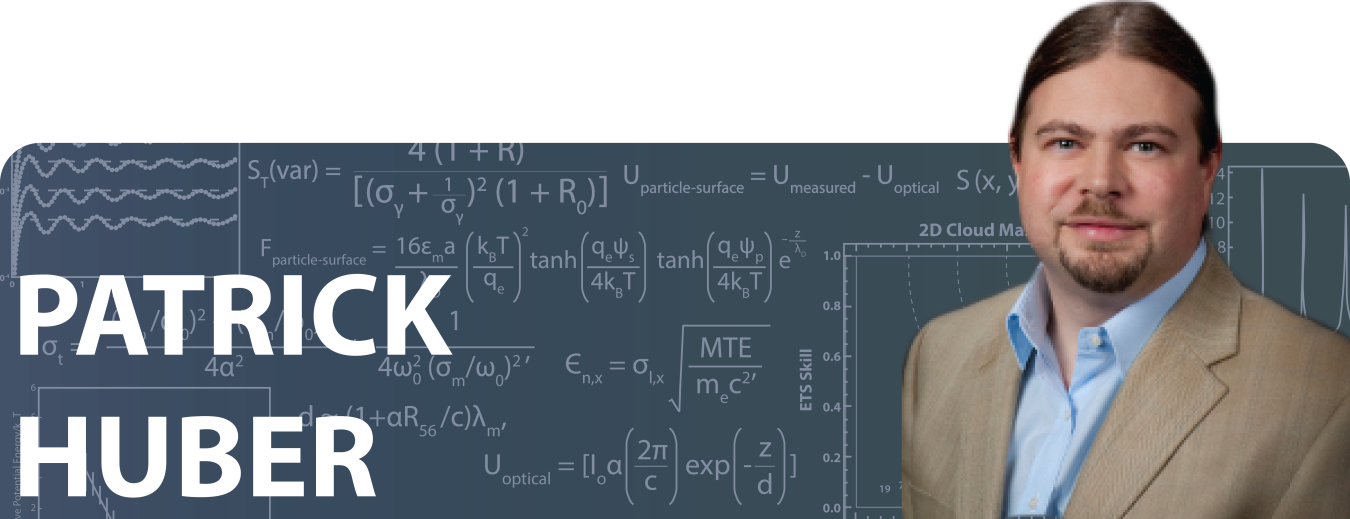Virginia Tech’s Patrick Huber is modeling reactor neutrino fluxes, improving our understanding of neutrino properties and their role in the cosmos.
October 2, 2020
WHAT DID THE 2010 EARLY CAREER AWARD ALLOW YOU TO DO?
My research focuses on neutrinos and the implications of neutrino masses and oscillation. The 2015 Physics Nobel prize was awarded to the researchers who discovered neutrino oscillations and by implication, neutrino masses.
Neutrinos are among the most abundant particles in the universe but are also the least well-known particle of the Standard Model of particle physics. The discovery of neutrino masses points to physics not currently known. To uncover this unknown physics, we need to obtain more precise data by using artificial neutrino sources. We have two ways to make neutrinos: either as a by-product of producing nuclear energy or by using custom-made particle accelerators.
Our group provides the most accurate model to-date of reactor neutrino fluxes. There are interesting discrepancies between this model and the observed result, possibly indicating the existence of a fourth type of neutrino, called the “sterile” neutrino. If confirmed, this would be the first discovery ever of a particle not predicted by the Standard Model. There are major experimental efforts under way to look for this sterile neutrino.
The award also allowed us to help shape the current U.S. domestic neutrino research program. The program is centered on accelerator-generated neutrino beams produced at Fermilab, near Chicago. In particular, our recent work highlighted the urgent need to better understand how neutrinos interact with complex atomic nuclei since neutrino detectors are made up of atomic nuclei.
ABOUT:
Patrick Huber is a professor in the Department of Physics and the director of the Center for Neutrino Physics at Virginia Tech.
SUPPORTING THE DOE SC MISSION:
The Early Career Research Program provides financial support that is foundational to early career investigators, enabling them to define and direct independent research in areas important to DOE missions. The development of outstanding scientists and research leaders is of paramount importance to the Department of Energy Office of Science. By investing in the next generation of researchers, the Office of Science champions lifelong careers in discovery science.
For more information, please go to the Early Career Research Program.
THE 2010 PROJECT ABSTRACT:
Neutrinos in the Universe
The primary objective of this project is to develop and advance theoretical tools to analyze and interpret data from neutrino experiments, the results of which will improve our understanding of neutrinos' properties and the role they play in the cosmos. Since the Standard Model of particles in its minimal version does not admit neutrino mass, the fact that neutrinos have mass suggests that neutrinos may be an important portal to new physics beyond the Standard Model. In addition to providing support for experimental projects such as the Daya Bay reactor neutrino experiment, this research will also use neutrinos as a tool for understanding high‐energy and astrophysical phenomena, including ultra-high energy cosmic rays and supernovae.
RESOURCES:
F.P. An, et al., “Observation of electron-antineutrino disappearance at Daya Bay.” Phys. Rev. Lett. 108, 171803 (2012). [DOI: 10.1103/PhysRevLett.108.171803]
P. Huber, “Determination of anti-neutrino spectra from nuclear reactors.” Phys. Rev. C 84, 024617 (2011). [DOI: 10.1103/PhysRevC.84.024617]
P. Coloma and P. Huber, “Impact of nuclear effects on the extraction of neutrino oscillation parameters.” Phys. Rev. Lett. 111, 221802 (2013). [DOI: 10.1103/PhysRevLett.111.221802]
DOE Explains… offers straightforward explanations of key words and concepts in fundamental science. It also describes how these concepts apply to the work that the Department of Energy’s Office of Science conducts as it helps the United States excel in research across the scientific spectrum. For more information on neutrinos and DOE’s research in this area, please go to “DOE Explains…Neutrinos.”
Additional profiles of the Early Career Research Program award recipients can be found on the Early Career Program Page.
The Office of Science is the single largest supporter of basic research in the physical sciences in the United States and is working to address some of the most pressing challenges of our time. For more information, please visit www.energy.gov/science.
Sandra Allen McLean

Sandra Allen McLean (sandra.mclean@science.doe.gov) is a communications specialist for the Office of Science in the Office of Communications and Public Affairs. Sandra is responsible for identifying, curating, or creating lay-language content about Office of Science-funded research for DOE web sites, popular and trade media, and stakeholder education. She researches and writes the historical Milestone Tweets for the office Twitter account @DOEScience.
Sandra holds an associate degree in American Sign Language interpreting, a bachelor’s in science journalism and biology, and a master’s in Information Sciences. Her hobbies are sewing – especially costumes! – and lesesucht, compounded by extreme tsundoku.


